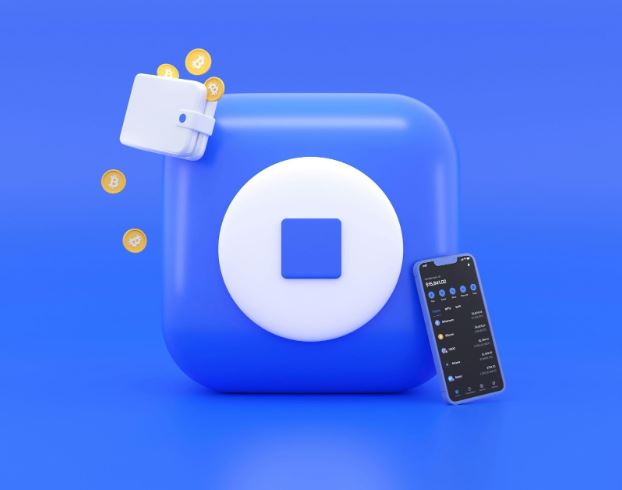Blockchain is giving Healthcare a much-needed security makeover by decentralizing where health data is stored. Tapping into smart contracts secures sensitive patient information and ensures only the proper eyes get to see it. Patients finally have transparency over their records, while doctors and insurers benefit from smoother, faster processes. From securing EHRs and accelerating claims and clinical trials to creating a safer, more innovative, and more patient-centric healthcare environment, the technology that underpins Bitcoin is coming into healthcare. Continue reading to learn more.
Blockchain Technology: The Key to Unbreakable Healthcare Data Security
Imagine that you walk into a doctor’s office and know, as in, you know with absolute certainty, that your medical records, test results, and treatment information are utterly safe. No guessing, no leaks, no bypassing the access. That’s no longer speculative; blockchain’s promise in healthcare.
We’re in an age when health information is the gold standard. The health care system is flooded with sensitive data, from electronic health records to insurance claims. But with that, of course, comes the pressing question – how do we protect it? The arrival of blockchain technology in healthcare data security is paving the way for a more secure, intelligent, open future for everyone involved, from physicians and patients to insurers and developers.
Let me make that more straightforward to understand.
The Healthcare Data Dilemma: Why We Need a Better Way
Ever wonder where your health information goes after you visit a doctor? You are surely not the only one feeling that way today. Your records are likely holed up in siloed systems – in effect, bits and pieces stashed with other hospitals, labs, and specialists. And what’s worse? They’re primarily outdated, heightening the risk for breaches.
- In 2023 alone, millions of patient records were compromised.
- HIPAA violations continue to climb, and the fines can be astronomical.
- Most patients don’t know who’s looking up their records, or why.
The absence of security and transparency is maddening at best – and dangerous at worst.” This is where the real magic of blockchain healthcare use cases lies.
What is Blockchain, and Why is Healthcare So Interested?
So, before you think your only knowledge of blockchain is Bitcoin, think again.
At its core, a blockchain is a digital ledger—a secure, distributed, and immutable way to record and share information. No one can change it, and every transaction is documented in an immutable way.
So what makes it such a great fit for healthcare?
- Such decentralized health data storage also prevents a single point of failure.
- For example, smart contracts in healthcare facilitate secure, automated transactions, including insurance approvals or prescription refills.
- When you combine HIPAA compliance and blockchain, you get a match made in heaven—encryption and access control are inherent.
- Patients can see who viewed their information and when and why, bringing patient data transparency to life.
Real-Life Benefits of Blockchain for Medical Records
Let’s get down to business. This is how blockchain for medical records creates a real impact:
- Using blockchain for patient data security
Patient information is not stored in one central place, but is encrypted and shared.
There is no central vault or way for hackers to “steal the keys.”
- Reporting Schedule of Data in Healthcare
Blockchain records every step taken, so patients and clinicians have an unobfuscated record of access and updates.
Mistakes or unlawful modifications? Virtually impossible.
- Security of patient data
Blockchain ensures that only authorized people can access sensitive health data, no more unanticipated data sharing.
- Blockchain for EHR
Your EHRs are made portable and interoperable – your information goes securely between hospitals, states, or even nations.
Use Cases: Where Blockchain is Already Making Waves
While blockchain in healthcare remains very much in its infancy, several innovative projects and pilots have already begun to show solemn promise:
- Chronic disease management: Patients with chronic diseases coordinate care with providers through a single, standardised, up-to-date patient record maintained by blockchain.
- Clinical trials: Blockchain software engineering services provide transparency to research data, consent, and outcomes.
- Medical supply chain: Tracks pharma and medical devices from factory to patient to prevent fraud and improve recalls.
- Insurance claims: Smart contracts speed up and reduce claim approvals and payments errors.
These are just a few examples of innovative blockchain use cases in the healthcare sector that aim to improve the status quo.
But What About Privacy? A Note on Compliance
The chief concern with healthcare is privacy, and that’s true—blockchain does not undermine medical data privacy; in fact, it protects it.
Here’s how it does with regulations:
- The data doesn’t live on the blockchain – access pointers or encrypted hashes do.
- Patients get to stay in control, permitting (or denying) access as appropriate.
- When combined with legacy security protocols, blockchain simplifies and enhances HIPAA compliance.
The Tech Behind the Scenes: Building the Future of Health with Custom Software
Now let’s talk about the magic behind the curtain – because while blockchain technology in healthcare is strong, it’s part of an enormous larger picture.
Healthcare organizations are turning to custom healthcare software development to transform this dream into reality. Why? because off-the-shelf software was not made for the high-stakes, highly regulated, and complicated world of healthcare.
Now this is where it gets interesting:
- Healthcare software development services enable hospitals, insurers, and startups to design and build solutions tailored to their workflows.
- Custom healthcare solutions merge blockchain and existing EHR systems, appointment booking, billing, and additional platforms.
- When you ask a healthcare app development company to partner with you, you are not only developing an app but also trusting.
And it doesn’t end there.
A tech-savvy software development company seeking digital transformation can never skip out on blockchain and custom healthcare software development!
Better care, better security, and a better patient experience can be achieved through enterprise software development services or medical software development services.
Why Blockchain is the Future of Healthcare
We’ve witnessed industries change before. Finance, logistics, manufacturing – now healthcare is next.
Healthcare application development services, AI, and IoT—everything has blockchain as an anchor, where data is secure, seamless, and transparently flow through this digital ecosystem.
And it is not just technology that healthcare is adopting; it’s becoming technology.
FAQs
How can blockchain improve data security in healthcare?
Blockchain uses encryption, decentralization, and immutability to protect healthcare data from breaches and unauthorized access.
How does blockchain ensure transparency?
Every interaction with data is logged in a tamper-proof ledger, making it easy to track who accessed what, when, and why.
How is blockchain technology used in healthcare?
From securing patient information with blockchain to streamlining insurance claims and managing clinical trials, blockchain enhances data security and workflow efficiency.
Can blockchain be used to store data securely and transparently?
Yes – data is encrypted and access is logged, ensuring it remains private yet trackable for authorized users.




